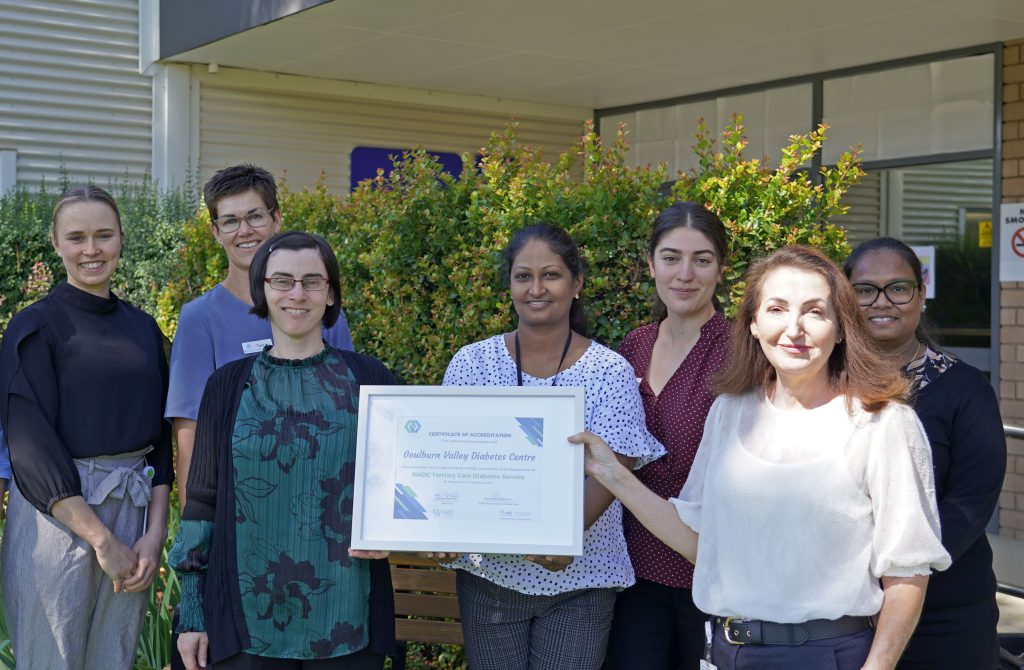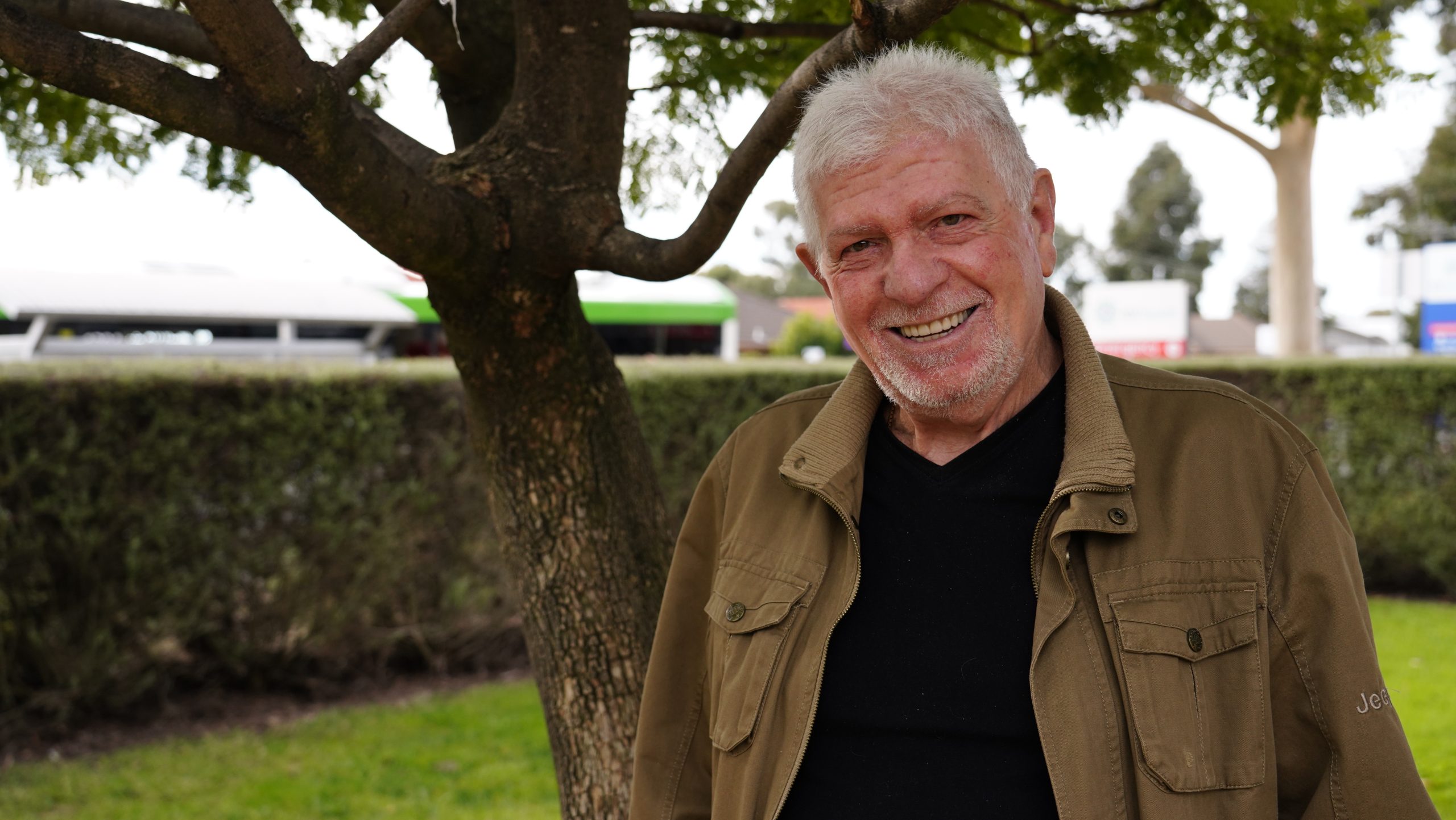At the age of 30, Tony Saggio was diagnosed with Type 2 diabetes.
Tony was told he could fix it with changes to his diet and lifestyle alongside some tablets.
But at such a young age, Tony decided it wasn’t something he needed to worry about.
“I rejected it,” Tony said.
“I was being hard-headed and when you’re hard-headed and not feeling sick, you think ‘is it really there?’
“You have your doubts, but doubts don’t lie.”
Coming from Sicily, Tony always enjoyed fine foods like pasta and cut meats, but he would often enjoy them in excess.
He also smoked and drank often without concern.
On top of this, Tony also had a family history of diabetes.
Tony’s father had Type 1 diabetes and passed away from it at the young age of 59, his brother has Type 2 diabetes and his father’s sister and her son also have Type 1 diabetes.
Despite this, he wasn’t concerned because he didn’t feel sick.
It wasn’t until he was taken to hospital with what he thought was intense heartburn, which was later diagnosed as chest pain caused by blocked arteries, which required quadruple bypass surgery, that he decided to start paying attention.
“It was a really big operation,” he said.
“I started worrying about my health when I was in intensive care because you’re there alone and you’ve got people beside you and when those blinds go down, they might not make it and that’s scary – I’ve got three kids and a wife.
“That’s when I started to realise that I had better do something about my health because it’s not getting any better unless I control it.”
Making a change for the better, Tony saw his GP who referred him to the GV Health Diabetes Centre.
When he first attended the clinic, Tony’s blood sugar levels were at an unhealthy level.
However, by working with the diabetes team over the past six months, he has been able to bring them back to a normal level.
“I went into the clinic and they said to me ‘your diabetes is serious and you need to lose weight’,” he said.
“So I did, I lost the weight and now I feel terrific.
“I was around 125kg and now I’m down to 95kg.
“I do watch what I eat – I’ve cut out bread, cut out pasta, cut out a lot of things like salami and all that.
“I’ve learnt to leave some food instead of eating it all in one go. That‘s the big difference I suppose in keeping my diabetes at a good level.
“I can’t thank the hospital enough for accepting me into their clinic, I could see the end result straight away.”
Looking back, Tony does wonder what his life would have looked like if he had taken his health more seriously and looked after himself, but in the end, it’s about enjoying where he is in the present.
“I think, how did I get to this stage where I could have maybe got rid of the diabetes beforehand and just been on a few tablets instead of taking 10 tablets now,” he said.
“If I had have done it earlier, who knows, but life is a question mark – that’s just the way it is, and I’ve just accepted it that way.
“Now if I could help somebody who’s got diabetes, I’d say mate you’re blowing wind in the air, you need to control it because it can be done and if I can do it, anyone can do it.”
GV Health Diabetes Centre is here to help
The GV Health Diabetes team is concerned about the level of community awareness of Type 2 diabetes symptoms.
Diabetes educator Sumi John and Care Coordination Team Manager Alynda Wayman believe it’s important people take care of their health and act on symptoms immediately, before it’s too late.
“We think there‘s a vast number of people out in the community that don‘t know they have Type 2 diabetes but might have subtle symptoms of it and shrug it off as a symptom of aging,” Alynda said.
“Anyone with symptoms should see their GP and get tested because the sooner they do, the quicker their blood sugar levels will be controlled and the better their health will be.”
Some of these symptoms can include:
– Feeling overly thirsty;
– Urinating more frequently;
– Tiredness;
– Weight loss;
– Blurred vision;
– Cuts that won’t heal or heal slowly; and
– Skin infections.
“We say diabetes is a slow killer, because if you‘re not diagnosed early and ignoring the symptoms, it can impact all of your other internal organs,” Sumi said.
The reality is the longer diabetes is left untreated, the worse the symptoms can get.
Some of the long-term effects of diabetes can include:
– Peripheral vascular disease;
– Retinopathy;
– Renal failure;
– Cardiovascular diseases;
– Kidney disease;
– Nerve damage; and
– Stroke.
The GV Health Diabetes Clinic helps anyone with diabetes, including pregnant women with gestational diabetes, individuals with Type 1 diabetes or Type 2 requiring insulin.
Individuals who have diabetes and associated foot/lower leg issues are seen by specialist podiatrists within the high-risk foot clinic.
The diabetes service works collaboratively with other services across GV Health, including helping inpatients with diabetes who may be undergoing treatment in Oncology or Dialysis.
The GV Health diabetes service provides support and or referrals to other community organisations including Rumbalara and Primary Care Connect.
The diabetes team consist of diabetes nurse practitioners, dieticians, credentialed diabetes educators, podiatrists, endocrinologists and medical officers.
To access services from the GV Health Diabetes Centre, you can be referred by your GP or self-refer by contacting 1800 222 582.

